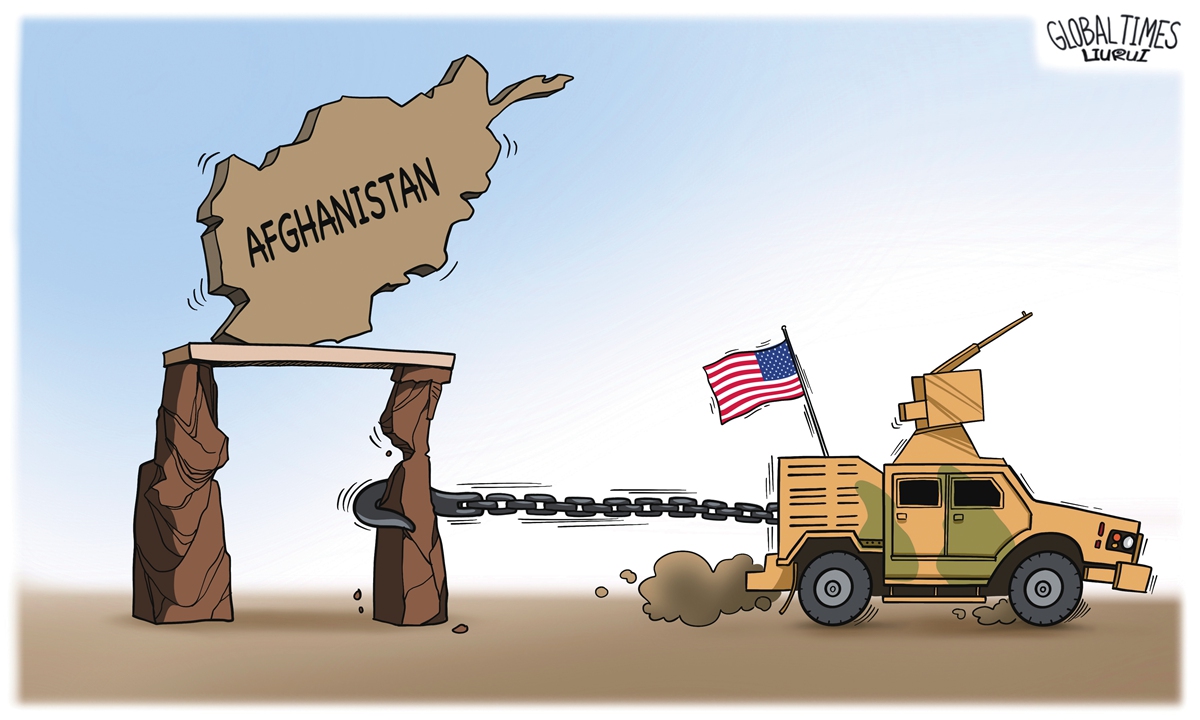Defeat In Afghanistan A Complete Humiliation For The US : Martin Jacques

By
Martin Jacques
The US is confronted with a historic defeat in Afghanistan at the hands of the Taliban. America’s longest war, which began in 2001, is ending in complete humiliation. The Taliban has captured the countryside, every major city and now Kabul has effectively fallen.
This is Saigon in 1975 all over again, except the US withdrawal from Vietnam took place in 1972 and its puppet government managed to survive another three years. America’s puppet government in Kabul has fallen only four months after the announcement in April that the US would withdraw.
It tells us that the Kabul government, and the American occupation, had only a tiny sliver of popular support: The condition for the former’s survival was America’s troops and Airforce. In contrast, the Taliban clearly enjoys considerable backing amongst the people.
The last two decades have been disastrous for the US. The election of George W. Bush in 2000 was supposed to mark, according to its neo-conservative doctrine, the beginning of a new American century and the continuation of the US’ unipolar moment following the end of the Cold War. Instead, it led to the humiliating defeats in Iraq and Afghanistan followed in 2008 by the worst financial crisis since 1931.
By the time of Bush’s departure in 2008, unipolarity was effectively dead and America’s reputation for military prowess had been undermined. America is now widely seen as a superpower in rapid decline, a pale shadow of what it once was. Its defeat in Afghanistan will have major implications across the world; It brings into question the competence of its political and military leadership, its willingness to engage in further military entanglements, and its reliability and commitment as an ally.
If it can make such a huge miscalculation and suffer such a catastrophic defeat in Afghanistan, then who is going to trust its judgement in East Asia, or the South China Sea.
Military power has been fundamental to America’s global role since 1945. It played a key role in undermining the Soviet Union during the Cold War. America has long believed that overweening military strength was the primary factor in enabling it to get its way in the world. That is why its military expenditure has been far greater than that of any other country. The first great setback to this philosophy was Vietnam. Now we have the examples of Iraq and Afghanistan. In each of these cases, America enjoyed a massive military advantage, but in the circumstances, it proved entirely inadequate. The key was to win over the people and military superiority could not win hearts and minds, the contrary in fact.
The US, of course, is not alone in having failed to conquer Afghanistan. Down the ages many foreign powers have tried, including Britain and the Soviet Union. There has been speculation in the West that perhaps China might try its hand next. The chances of China being so stupid are zero. In fact, nothing better illustrates the fundamental difference between China and the US than their approach to Afghanistan. The US sought to subdue the country overwhelmingly by force. It offered precious little else. There was no serious attempt to foster economic growth in a desperately poor country. China’s approach, in contrast, will be completely different. There will be no military involvement. The PLA will have no role. China, in the longer term, will attach the greatest importance to how it can assist in the economic development of the country, just as it has done in Africa, Latin America and South East Asia. Development has been the calling card of China. It lies at the heart of the Belt and Road Initiative. The fact that China has been a developing country since 1949 gives it an understanding, and empathy with, the problems of the developing world. The US, as a rich society, has little comprehension of, or interest in, their problems.
China will have another overriding concern. While the US has spent 20 years waging a war in Afghanistan that has sown profound divisions and instability in a country and a region that is over 11,000 kilometres away, China’s interest is the opposite. As a country that shares a border with Afghanistan, it will seek to bring stability to the country and to the wider region, not least because this also has implications for the situation in Xinjiang. Above all, China understands that instability and war are the enemy of economic development.
The fundamental difference in the approach of China and the US has, of course, much deeper historical roots. The credo of America ever since its birth has been expansion – across its own continent, the Pacific, and since 1945 across the whole world, with nearly 800 military bases in over 70 countries. In contrast, China has no such history and has never regarded military power as paramount. While the US has pursued global expansion, China has prioritized its own stability and development.
The author was until recently a Senior Fellow at the Department of Politics and International Studies at Cambridge University.




